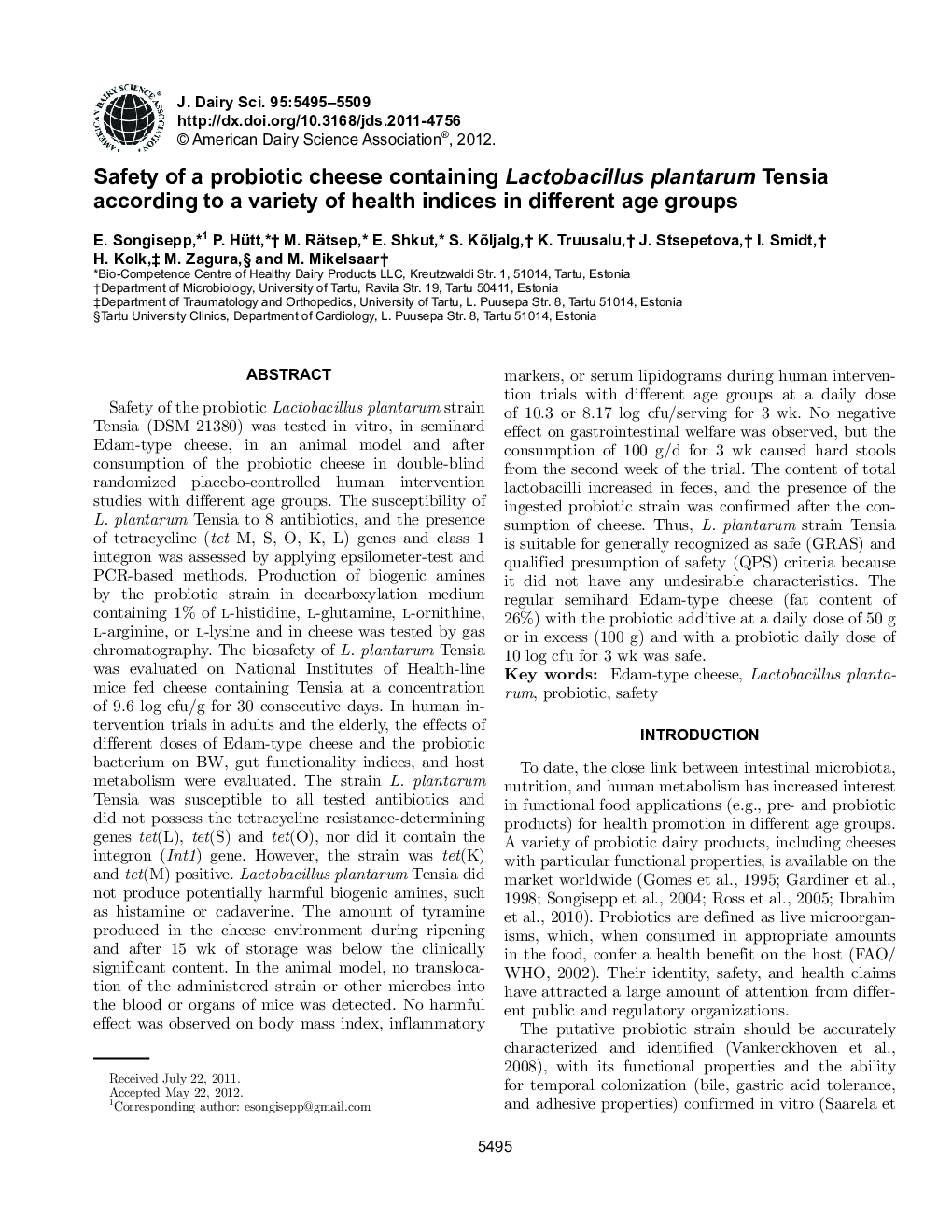| Article ID | Journal | Published Year | Pages | File Type |
|---|---|---|---|---|
| 10981138 | Journal of Dairy Science | 2012 | 15 Pages |
Abstract
Safety of the probiotic Lactobacillus plantarum strain Tensia (DSM 21380) was tested in vitro, in semihard Edam-type cheese, in an animal model and after consumption of the probiotic cheese in double-blind randomized placebo-controlled human intervention studies with different age groups. The susceptibility of L. plantarum Tensia to 8 antibiotics, and the presence of tetracycline (tet M, S, O, K, L) genes and class 1 integron was assessed by applying epsilometer-test and PCR-based methods. Production of biogenic amines by the probiotic strain in decarboxylation medium containing 1% of l-histidine, l-glutamine, l-ornithine, l-arginine, or l-lysine and in cheese was tested by gas chromatography. The biosafety of L. plantarum Tensia was evaluated on National Institutes of Health-line mice fed cheese containing Tensia at a concentration of 9.6 log cfu/g for 30 consecutive days. In human intervention trials in adults and the elderly, the effects of different doses of Edam-type cheese and the probiotic bacterium on BW, gut functionality indices, and host metabolism were evaluated. The strain L. plantarum Tensia was susceptible to all tested antibiotics and did not possess the tetracycline resistance-determining genes tet(L), tet(S) and tet(O), nor did it contain the integron (Int1) gene. However, the strain was tet(K) and tet(M) positive. Lactobacillus plantarum Tensia did not produce potentially harmful biogenic amines, such as histamine or cadaverine. The amount of tyramine produced in the cheese environment during ripening and after 15 wk of storage was below the clinically significant content. In the animal model, no translocation of the administered strain or other microbes into the blood or organs of mice was detected. No harmful effect was observed on body mass index, inflammatory markers, or serum lipidograms during human intervention trials with different age groups at a daily dose of 10.3 or 8.17 log cfu/serving for 3 wk. No negative effect on gastrointestinal welfare was observed, but the consumption of 100Â g/d for 3 wk caused hard stools from the second week of the trial. The content of total lactobacilli increased in feces, and the presence of the ingested probiotic strain was confirmed after the consumption of cheese. Thus, L. plantarum strain Tensia is suitable for generally recognized as safe (GRAS) and qualified presumption of safety (QPS) criteria because it did not have any undesirable characteristics. The regular semihard Edam-type cheese (fat content of 26%) with the probiotic additive at a daily dose of 50Â g or in excess (100Â g) and with a probiotic daily dose of 10 log cfu for 3 wk was safe.
Related Topics
Life Sciences
Agricultural and Biological Sciences
Animal Science and Zoology
Authors
E. Songisepp, P. Hütt, M. Rätsep, E. Shkut, S. Kõljalg, K. Truusalu, J. Stsepetova, I. Smidt, H. Kolk, M. Zagura, M. Mikelsaar,
